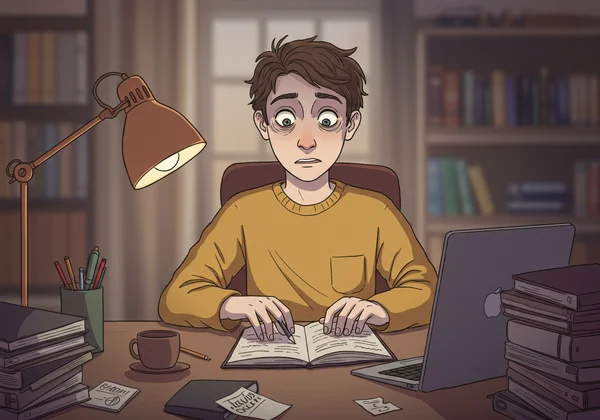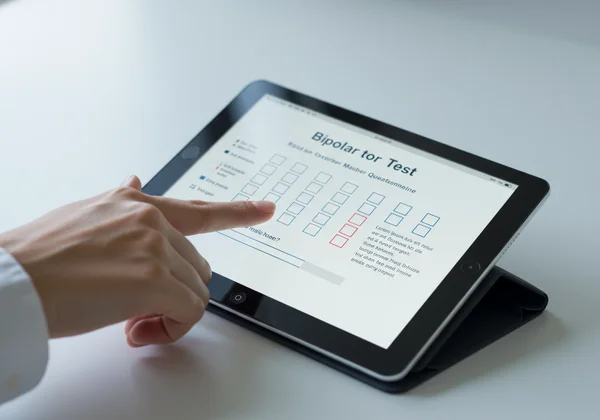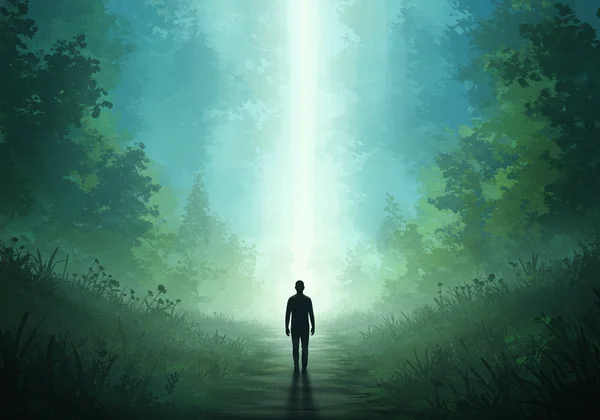हाइपोमेनिया और बाइपोलर II विकार: 7 सूक्ष्म लक्षण और बाइपोलर टेस्ट कब करवाएं
September 2, 2025 | By Felicity Hayes
क्या आपने कभी ऐसे दौर का अनुभव किया है जब आप दुनिया के शीर्ष पर महसूस करते हैं—असामान्य रूप से ऊर्जावान, अविश्वसनीय रूप से उत्पादक, और बहुत कम नींद की आवश्यकता होती है—केवल बाद में खुद को एक गहरे अवसाद में पाते हैं? इन बदलावों के बारे में सोचना आम बात है। बहुत से लोग खुद से पूछते हैं, क्या मैं बाइपोलर हूँ या सिर्फ चिड़चिड़ा हूँ? यह मार्गदर्शिका बाइपोलर II विकार के सबसे गलत समझे गए पहलुओं में से एक को स्पष्ट करने के लिए है: हाइपोमेनिया के सूक्ष्म लक्षण। इन लक्षणों को समझना स्पष्टता की दिशा में पहला कदम है। यदि ये अनुभव आपके साथ मेल खाते हैं, तो निःशुल्क ऑनलाइन बाइपोलर परीक्षण का पता लगाना एक अंतर्दृष्टिपूर्ण अगला कदम हो सकता है।
हाइपोमेनिया क्या है? मनोदशा की स्थिति को समझना
हाइपोमेनिया को अक्सर उन्माद का कम गंभीर रूप बताया जाता है। यह एक विशिष्ट अवधि है जिसमें मनोदशा में वृद्धि या चिड़चिड़ापन होता है और ऊर्जा या गतिविधि में असामान्य रूप से लगातार वृद्धि होती है। पूर्ण उन्माद के विपरीत, जो दैनिक जीवन को महत्वपूर्ण रूप से बाधित करता है और अस्पताल में भर्ती होने की आवश्यकता हो सकती है, हाइपोमेनिया अधिक सूक्ष्म होता है। कई लोगों के लिए, यह सकारात्मक भी महसूस हो सकता है, जैसे उत्पादकता या रचनात्मकता का एक विस्फोट, यही कारण है कि यह अक्सर अनभिज्ञ रहता है। मुख्य बात यह है कि यह आपके सामान्य स्वयं से एक ध्यान देने योग्य बदलाव का प्रतिनिधित्व करता है।
सिर्फ "अच्छे मूड" से कहीं अधिक: हाइपोमेनिया को परिभाषित करना
हाइपोमेनिया को केवल खुश महसूस करने या एक उत्पादक दिन होने से अलग करना महत्वपूर्ण है। मानसिक विकारों के नैदानिक और सांख्यिकीय मैनुअल (DSM-5) के अनुसार, एक हाइपोमेनिक एपिसोड में कम से कम चार लगातार दिनों तक रहने वाला एक ऊंचा या उत्साहित मूड शामिल होता है। इस अवधि में कम से कम तीन अन्य विशिष्ट लक्षण भी शामिल होने चाहिए, जैसे नींद की आवश्यकता में कमी या विचारों की तेज़ गति। यह सिर्फ एक अच्छा मूड नहीं है; यह आपकी पूरी स्थिति में एक निरंतर बदलाव है जिसे दूसरे भी देख सकते हैं, भले ही आपको लगे कि आप सिर्फ अधिक कुशल या मिलनसार हो रहे हैं।
हाइपोमेनिया पूर्ण उन्माद से कैसे भिन्न है: गंभीरता और प्रभाव
हाइपोमेनिया और उन्माद के बीच प्राथमिक अंतर उनकी तीव्रता और आपके जीवन पर उनके प्रभाव में निहित है। उन्माद गंभीर होता है। यह काम पर, रिश्तों में और वित्त के साथ महत्वपूर्ण समस्याएं पैदा कर सकता है, और इसमें भ्रम जैसे मनोविकृति संबंधी लक्षण शामिल हो सकते हैं। दूसरी ओर, हाइपोमेनिया कार्यप्रणाली में बड़ी बाधा नहीं डालता है। जबकि आपके आस-पास के लोग यह देख सकते हैं कि आप अधिक ऊर्जावान या बातूनी हैं, आप आम तौर पर अपनी दैनिक जिम्मेदारियों को निभा सकते हैं। यह सूक्ष्मता ही वह सटीक कारण है कि बाइपोलर II विकार वाले कई लोग यह महसूस नहीं कर पाते कि उनकी उन्नत अवस्थाएं एक बड़े पैटर्न का हिस्सा हैं।

7 सूक्ष्म बाइपोलर II लक्षण जिन्हें आपको नज़रअंदाज़ नहीं करना चाहिए
हाइपोमेनिया के लक्षणों को पहचानना चुनौतीपूर्ण है क्योंकि वे सकारात्मक लक्षणों की तरह महसूस हो सकते हैं। हालांकि, जब वे एक चक्र का हिस्सा होते हैं जिसमें अवसादग्रस्तता के एपिसोड भी शामिल होते हैं, तो वे बाइपोलर II विकार का संकेत दे सकते हैं। यहां सात सूक्ष्म लक्षण दिए गए हैं जिनसे आपको अवगत होना चाहिए।
ऊर्जा और गतिविधि के स्तर में लगातार वृद्धि
यह सिर्फ वह ऊर्जा नहीं है जो आपको अच्छी नींद से मिलती है। यह एक गुनगुनाहट, बेचैन करने वाली भावना है जहाँ आप सक्रिय रहने के लिए मजबूर महसूस करते हैं। आप एक साथ कई परियोजनाएं शुरू कर सकते हैं, आधी रात को पूरा घर साफ कर सकते हैं, या स्थिर बैठना असंभव पा सकते हैं। यह उन्नत ऊर्जा स्तर कई दिनों तक पूरे दिन बना रहता है, जो आपकी सामान्य आधार रेखा से एक स्पष्ट प्रस्थान है।
थकान के बिना नींद की आवश्यकता में कमी
हाइपोमेनिया के सबसे क्लासिक लक्षणों में से एक है केवल कुछ घंटों की नींद के बाद पूरी तरह से तरोताजा और ऊर्जावान महसूस करना। आप सुबह 3 बजे उठ सकते हैं और तरोताजा महसूस कर सकते हैं और अपना दिन शुरू करने के लिए तैयार हो सकते हैं। अनिद्रा के विपरीत स्थिति में, जहाँ आप सोना चाहते हैं लेकिन सो नहीं पाते, एक हाइपोमेनिक एपिसोड के दौरान, आपको बस इसकी आवश्यकता महसूस नहीं होती और अगले दिन थकावट महसूस नहीं होती।
विचारों की तेज़ गति और त्वरित भाषण
क्या आपको कभी ऐसा महसूस होता है कि आपका दिमाग इतनी तेज़ी से चल रहा है कि उसके साथ तालमेल बिठाना मुश्किल हो रहा है? एक हाइपोमेनिक एपिसोड के दौरान, विचार तेज़ी से एक विचार से दूसरे विचार पर कूद सकते हैं। यह आंतरिक अनुभव अक्सर बाहरी रूप से दबाव वाले या त्वरित भाषण के रूप रूप में प्रकट होता है। आप सामान्य से अधिक तेज़ी से बात कर सकते हैं, विषयों के बीच कूद सकते हैं, और दूसरों के लिए आपको रोकना मुश्किल हो सकता है।

बढ़ी हुई चिड़चिड़ापन या उत्तेजना
जबकि हाइपोमेनिया उत्साहजनक महसूस हो सकता है, यह अत्यधिक चिड़चिड़ापन के रूप में भी प्रस्तुत हो सकता है। आपका मिजाज छोटा हो सकता है, उन चीजों से आसानी से परेशान हो सकते हैं जो सामान्य रूप से आपको परेशान नहीं करेंगी, या उत्तेजित और बेचैन महसूस कर सकते हैं। यह "उत्तेजित अवस्था में चिड़चिड़ापन" एक सामान्य लेकिन अक्सर अनदेखा किया जाने वाला संकेत है क्योंकि यह एक खुश, उन्नत मनोदशा की रूढ़िवादी छवि में फिट नहीं बैठता है।
बढ़ा हुआ जोखिम लेना और आवेगशीलता
हाइपोमेनिया आपके संकोच को कम कर सकता है और आपके निर्णय को बाधित कर सकता है। इससे ऐसे आवेगी व्यवहार हो सकते हैं जो आपके चरित्र के विपरीत हैं। आप खुद को जल्दबाजी में वित्तीय निर्णय लेते हुए पा सकते हैं जैसे कि खर्च करने की होड़, जोखिम भरे यौन व्यवहार में संलग्न होना, या परिणामों पर विचार किए बिना अचानक जीवन बदलने वाले विकल्प बनाना। ये कार्य अक्सर आत्मविश्वास की बढ़ी हुई भावना से उत्पन्न होते हैं।
असामान्य बातूनीपन और सामाजिकता
आप खुद को सामान्य से कहीं अधिक सामाजिक और बहिर्मुखी पा सकते हैं। यह अजनबियों से बातचीत शुरू करना, हर घंटे दोस्तों को फोन करना, या अत्यधिक बातूनी होना और बातचीत पर हावी होना जैसा लग सकता है। जबकि यह सामाजिक आत्मविश्वास में वृद्धि जैसा महसूस हो सकता है, दूसरों के लिए, यह असामान्य रूप से तीव्र लग सकता है। यदि आप अपने मूड पैटर्न के बारे में सोच रहे हैं, तो एक बाइपोलर मूल्यांकन परीक्षण उनकी समीक्षा करने का एक संरचित तरीका प्रदान कर सकता है।
बढ़ी हुई रचनात्मकता या उत्पादकता
कई लोगों के लिए, एक हाइपोमेनिक एपिसोड तीव्र रचनात्मकता और उत्पादकता की अवधि होती है। आप नए विचारों से भरे हुए महसूस कर सकते हैं, एक परियोजना पर कड़ी मेहनत से काम कर सकते हैं, और कम समय में बहुत कुछ हासिल कर सकते हैं। जबकि यह एक सकारात्मक परिणाम हो सकता है, इसे एक चक्र के हिस्से के रूप में पहचानना महत्वपूर्ण है, खासकर यदि इसके बाद अवसाद में एक क्रैश होता है जहाँ आप मुश्किल से काम कर पाते हैं।
बाइपोलर II टेस्ट कब करवाएं
यदि आप उदासी की अवधि के बाद इन उन्नत मूड के पैटर्न को पहचानते हैं, तो यह अधिक स्पष्टता प्राप्त करने का समय हो सकता है। अनुपचारित बाइपोलर II विकार का आपके जीवन पर महत्वपूर्ण प्रभाव पड़ सकता है, लेकिन इसे प्रभावी ढंग से प्रबंधित करने की दिशा में पहला कदम समझना है। एक स्क्रीनिंग उपकरण इस यात्रा में एक मूल्यवान प्रारंभिक बिंदु हो सकता है।
अपने मूड पैटर्न और दैनिक जीवन के प्रभाव पर विचार करना
अपने इतिहास के बारे में सोचने के लिए कुछ समय निकालें। क्या उच्च ऊर्जा और निम्न मूड की इन अवधियों ने आपके रिश्तों, काम के प्रदर्शन या समग्र स्थिरता को प्रभावित किया है? एक मूड जर्नल रखना आपको इन पैटर्न को पहचानने में मदद कर सकता है। इन मूड स्विंग के आपके जीवन पर पड़ने वाले प्रभाव को स्वीकार करना मदद मांगने और आपके मानसिक स्वास्थ्य को गहराई से समझने की दिशा में एक महत्वपूर्ण कदम है। यह अंतर्दृष्टि प्राप्त करना ही कारण है कि कई लोग पहला कदम उठाने का फैसला करते हैं।
एक ऑनलाइन बाइपोलर स्क्रीनिंग टेस्ट क्यों मदद कर सकता है
एक ऑनलाइन स्क्रीनिंग टूल, जैसे कि हमारा निःशुल्क बाइपोलर परीक्षण, एक गोपनीय और सुलभ पहला कदम के रूप में कार्य करता है। हमारा निःशुल्क बाइपोलर परीक्षण वैज्ञानिक रूप से मान्य 'मूड डिसऑर्डर प्रश्नावली' (MDQ) पर आधारित है और DSM-5 मानदंडों के साथ संरेखित है। यह आपको आपके मूड पैटर्न में तत्काल प्रारंभिक अंतर्दृष्टि प्रदान करता है। आप अपने अनुभवों के गहरे विश्लेषण और कार्रवाई योग्य मार्गदर्शन के लिए एक व्यक्तिगत AI-जनित रिपोर्ट का विकल्प भी चुन सकते हैं। यह एक स्वास्थ्य सेवा पेशेवर से बात करने से पहले अपने विचारों को व्यवस्थित करने के लिए एक शक्तिशाली उपकरण है।

अगला कदम उठाना: हाइपोमेनिया पर स्पष्टता प्राप्त करना
हाइपोमेनिया के सूक्ष्म लक्षणों को समझना वास्तव में आगे बढ़ने की दिशा में एक सशक्त कदम है। यह खुद को लेबल करने के बारे में नहीं है, बल्कि अपने अनुभवों को समझने और सही सहायता प्राप्त करने के लिए आवश्यक स्पष्टता प्राप्त करने के बारे में है। उच्च ऊर्जा की ये अवधि, जब एक बड़े चक्र का हिस्सा होती हैं, ध्यान देने योग्य होती हैं। वे सिर्फ "अच्छे मूड" या उत्पादकता के विस्फोट नहीं हैं; वे प्रमुख संकेतक हैं जो आपको अपनी मानसिक स्वास्थ्य पहेली को एक साथ जोड़ने में मदद कर सकते हैं।
यदि यह लेख आपके साथ मेल खाता है, तो अधिक जानकारी प्राप्त करने में संकोच न करें। आप आज ही सुरक्षित और गोपनीय रूप से अपने मूड पैटर्न का पता लगाना शुरू कर सकते हैं। हमारी निःशुल्क स्क्रीनिंग लेना खुद को बेहतर ढंग से समझने और स्थिरता और कल्याण के मार्ग को खोजने की दिशा में एक सक्रिय कदम है।

हाइपोमेनिया और बाइपोलर II के बारे में अक्सर पूछे जाने वाले प्रश्न
क्या मैं सिर्फ चिड़चिड़ा हूँ, या यह हाइपोमेनिया हो सकता है?
मूडीनेस मानवीय अनुभव का एक सामान्य हिस्सा है, जो अक्सर विशिष्ट स्थितियों से जुड़ा होता है। हालांकि, हाइपोमेनिया एक अलग, निरंतर एपिसोड है जो कम से कम चार दिनों तक चलता है जहाँ आपका मूड और ऊर्जा का स्तर आपके सामान्य स्वयं से स्पष्ट रूप से भिन्न होता है। मुख्य अंतर एक उच्च-ऊर्जा अवस्था में स्पष्ट "बदलाव" है जो असामान्य है और अक्सर नींद की आवश्यकता में कमी जैसे अन्य लक्षणों के साथ होता है।
डॉक्टर बाइपोलर II विकार का निदान कैसे करते हैं?
एक योग्य मानसिक स्वास्थ्य पेशेवर, जैसे कि एक मनोचिकित्सक या मनोवैज्ञानिक द्वारा निदान किया जाता है। इसमें आपके लक्षणों, मूड इतिहास, पारिवारिक इतिहास और जीवन के अनुभवों पर चर्चा करने के लिए एक व्यापक क्लीनिकल इंटरव्यू शामिल होता है। वे आकलन करेंगे कि क्या आप DSM-5 में उल्लिखित हाइपोमेनिक और प्रमुख अवसादग्रस्तता दोनों एपिसोड के लिए विशिष्ट मानदंडों को पूरा करते हैं। एक ऑनलाइन बाइपोलर स्क्रीनिंग टेस्ट आपकी नियुक्ति में लाने के लिए एक सहायक उपकरण हो सकता है।
यदि मैं खुद में इन संकेतों को पहचानता हूँ तो मुझे क्या करना चाहिए?
यदि आप इन विवरणों में खुद को देखते हैं, तो पहला कदम संरचित तरीके से अधिक जानकारी एकत्र करना है। हमारे बाइपोलर परीक्षण जैसे गोपनीय स्क्रीनिंग टूल का उपयोग करने से आपको अपने लक्षणों को व्यवस्थित करने में मदद मिल सकती है। अगला, सबसे महत्वपूर्ण कदम इन परिणामों और अपनी चिंताओं को पूर्ण मूल्यांकन के लिए एक डॉक्टर या मानसिक स्वास्थ्य पेशेवर के साथ साझा करना है।
हाइपोमेनिया के लिए एक ऑनलाइन बाइपोलर डिसऑर्डर टेस्ट कितना सटीक है?
हमारा ऑनलाइन बाइपोलर डिसऑर्डर टेस्ट एक स्क्रीनिंग टूल है, न कि निदान करने वाला उपकरण। इसे व्यापक रूप से उपयोग किए जाने वाले और वैज्ञानिक रूप से मान्य MDQ के आधार पर डिज़ाइन किया गया है ताकि उन पैटर्न की पहचान करने में मदद मिल सके जो बाइपोलर विकार की उपस्थिति का सुझाव दे सकते हैं। जबकि अत्यधिक जानकारीपूर्ण, यह एक पेशेवर निदान की जगह नहीं ले सकता है। परिणाम, विशेष रूप से हमारी वैकल्पिक AI व्यक्तिगत रिपोर्ट के साथ, स्वास्थ्य सेवा प्रदाता के साथ चर्चा करने के लिए मूल्यवान अंतर्दृष्टि प्रदान कर सकते हैं।
अस्वीकरण: यह सामग्री केवल सूचनात्मक उद्देश्यों के लिए है और यह किसी भी तरह से चिकित्सा सलाह का विकल्प नहीं है। यह पेशेवर चिकित्सा सलाह, निदान या उपचार का विकल्प नहीं है। चिकित्सा स्थिति के संबंध में आपके किसी भी प्रश्न के लिए हमेशा अपने चिकित्सक या किसी अन्य योग्य स्वास्थ्य प्रदाता की सलाह लें।